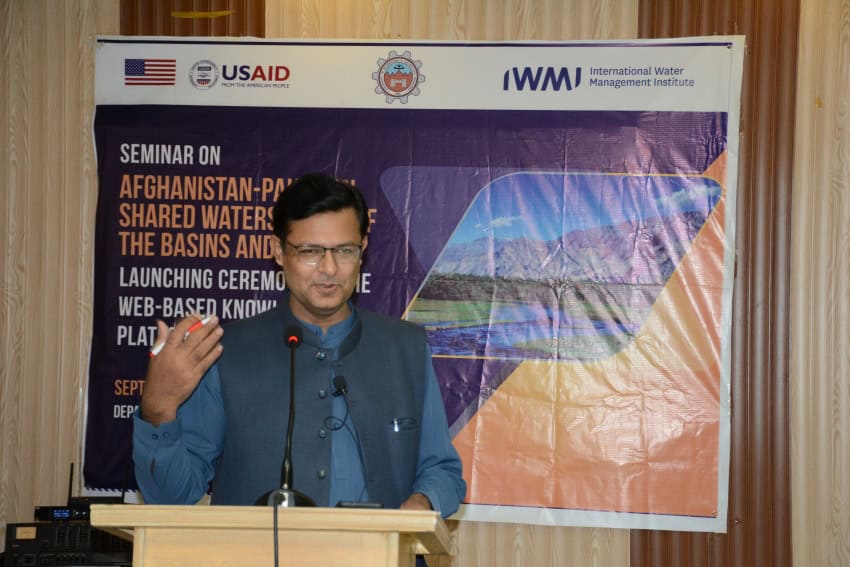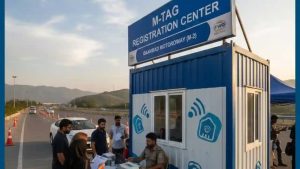PESHAWAR—The United States Agency for International Development (USAID)- funded “Water Management for Enhanced Productivity” (WMfEP) has launched groundbreaking initiatives to reduce constraints to productive and sustainable water use in the agriculture sector in Khyber Pakhtunkhwa province and beyond.
The event, which took place at the Department of Agricultural Engineering, University of Engineering & Technology (UET) Peshawar, brought together over 60 participants, including officials from UET Peshawar, Agriculture University Peshawar, and the University of Peshawar, officials from OFWM, the agriculture and irrigation departments of KP, FAO, the private sector, and students from Afghanistan and Pakistan.
The event discussed the publication of an open-access book, “Afghanistan-Pakistan Shared Waters: State of the Basins,” which provides a comprehensive overview of the three most important river basins (Kabul, Kurram, and Gomal) shared by Afghanistan and Pakistan.
The launching ceremony discussed the development of an interactive dashboard web-based platform that provides critical data for water resource management and conservation efforts in five transboundary river basins (Kabul, Kurram, Gomal, Dori, and Pishin Lora).
Lead editor and the Chief of Party for WMfEP/Researcher at IWMI Pakistan, Dr. Azeem Ali Shah, said, “The launch of the Afg-Pak River Basins Knowledge Platform is an important step for the policymakers to extract valuable information for engaging in a meaningful dialogue with Afghanistan. We believe this platform will serve as a knowledge resource for stakeholders and contribute to improved water management practices in the region.”
Dr. Hammad Gilani from New Mexico State University demonstrated the features and functionality of the Afg-Pak River Basins Knowledge Platform and showcased its applications and usability.
These initiatives address the lack of water cooperation between Afghanistan and Pakistan despite sharing nine rivers with a combined population of over 43 million. The tools will enable researchers, policymakers, and communities to make informed decisions, formulate policies, and allocate resources for various applications, ultimately contributing to the region’s socio-economic development and political stability.
The platform’s interactive dashboard allows users to explore and analyse data on five transboundary river basins, including the Kabul, Kurram, Gomal, Dori and Pishin Lora. With over twenty satellite-derived variables and more than twenty years of data, the platform provides unparalleled insights into the region’s hydrology, land use, and water resources.
The Vice-Chancellor, UET Peshawar, was the Chief Guest at the event. He appreciated USAID and IWMI for their contributions to this important topic of water management. The audience raised pertinent questions, seeking clarification on various aspects of the initiative. The Q&A session demonstrated the enthusiasm and interest of students and researchers alike, eager to explore its possibilities and benefits.














